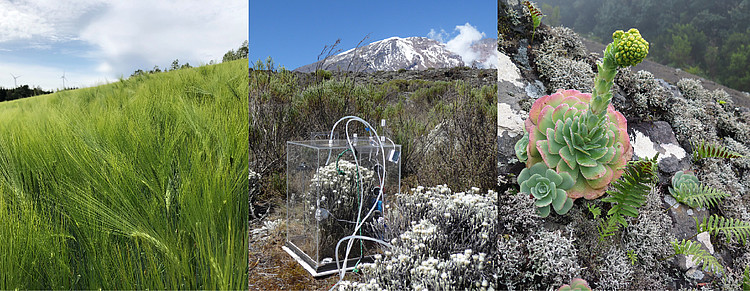Plant Ecology

Understanding the response dynamics of plants as key components of ecosystems is paramount for successful predictions about the future functionality and resilience of our ecosystems.
Our ecosystems experience constant global changes which visibly increased during recent decades. This puts increasing pressure on ecosystem functionality and the provision of ecological services. At the same time, historical contingencies as a result of past ecological dynamics strongly shape the current and future responses of ecosystems. The response of single plants as well as entire ecosystems to environmental changes is often temporally delayed, i.e. in disequilibrium with current environmental conditions but then occurs abruptly, i.e. highly nonlinear. These complex response dynamics are key drivers of ecosystem resilience and therefore play a key role for agriculture and forestry. However, such complex responses also decrease accuracy of future predictions and therefore are challenging for scientists. Nevertheless, understanding the response dynamics of key ecosystem components such as plants is paramount for successful predictions about the future functionality and resilience of the ecosystems we depend on.
In our research, we focus on various aspects of ecological response dynamics of plants in the Anthropocene and beyond with the aim to develop adaptation and mitigation strategies for sustainable land use. Interactions between plants and their biotic and abiotic environment on various scales ranging from individual plants and plant communities to ecosystems are the core of our interests.
Our research topics include:
- Nonlinear and disequilibrium responses of ecosystems to climatic and land use changes.
- Changing environmental predictability and its effects on plants.
- Effects of climate change symptoms (i.e. drought) on crop productivity and quality
- Agrivoltaics and its potential to attenuate climate change impacts on crops.
- Effects of pollutants from agriculture, industry, traffic and other sources, on ecosystems.
- Actively utilizing plants and plant communities to diminish the effects of global changes, to mitigate climatic extremes and to effectively sequester pollutants.
- Optimization of ecological sampling approaches.
We regard the combination of the different research topics as essential to increase our understanding of ecosystem functionality as a critical issue for society. To study the different topics, we use a variety of different methodological approaches including ecophysiological measurements on leaf and canopy level, experiments (climate chambers, green house and common garden), monitoring and computer simulations.


